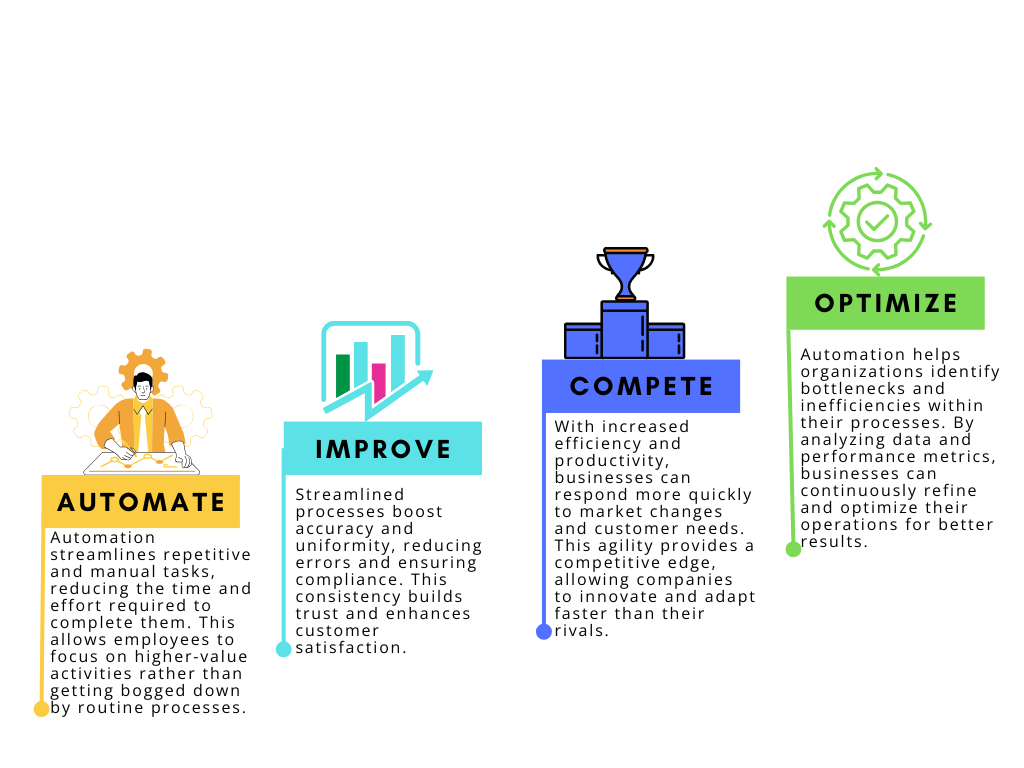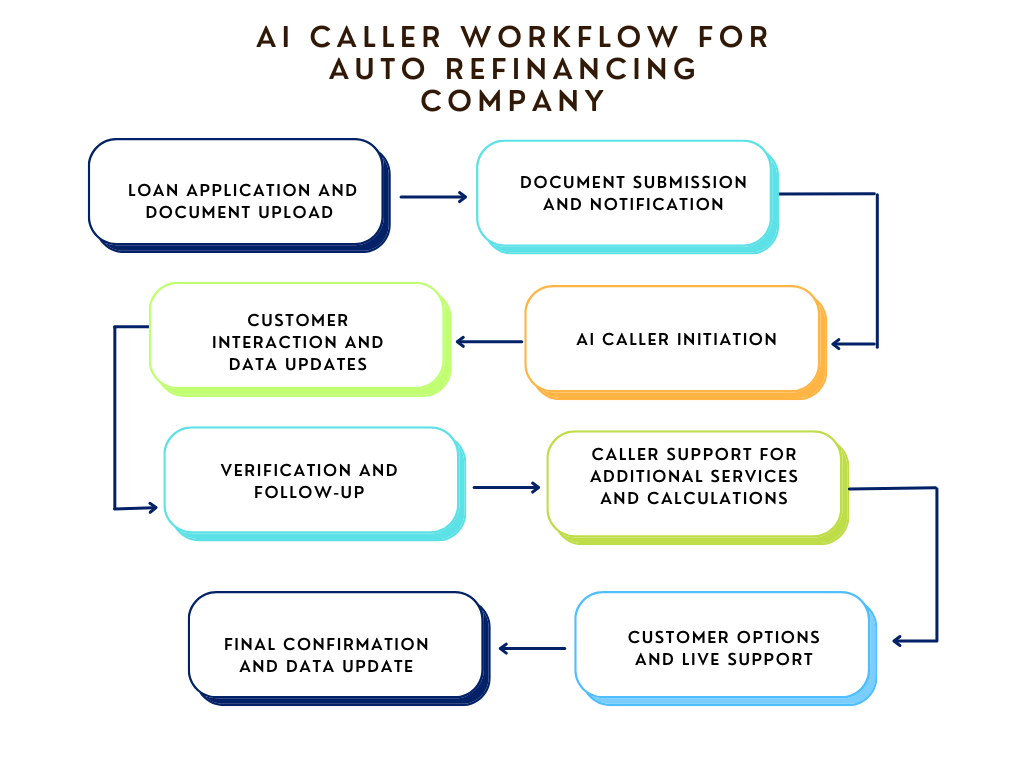In an era of rapid technological advancement, integrating artificial intelligence (AI) into business processes is not merely an option—it has become essential for organizations seeking to enhance productivity and maintain a competitive edge. As the adage goes, “The best way to predict the future is to create it.” By embracing AI-driven automation, companies can streamline operations, minimize errors, and reallocate human resources to more strategic initiatives, ultimately transforming their operational landscapes and empowering them to navigate the future confidently.
Addressing Core Challenges
While the potential of AI automation is immense, businesses today confront numerous challenges that can obstruct operational efficiency and impede customer satisfaction. Recognizing these hurdles is the first step toward leveraging AI effectively. Here are some core challenges organizations face:
Regulatory Compliance
- Increasing complexity of regulatory frameworks.
- Requires substantial resources to navigate a constantly evolving landscape.
- Ineffective compliance management can lead to significant financial penalties and reputational damage.
Rise in Fraudulent Activities
- The growth of digital transactions has resulted in increased fraudulent activities.
- Traditional detection methods often lack the sophistication needed to address this issue.
Customer Experience Demands
- Organizations must deliver personalized and timely services in a fast-paced market.
- Legacy systems hinder agility and the ability to provide tailored solutions.
Recruitment and Talent Shortages
- Difficulty in attracting skilled professionals.
- Manual processes are inefficient and time-consuming, leading to talent shortages that stifle growth.
Transformative Power of AI Automation

AI automation presents a robust solution to these pressing challenges. Organizations can achieve streamlined regulatory compliance by automating data collection and reporting, allowing real-time monitoring and minimizing risks. Regarding fraud detection, AI systems excel by analyzing transaction patterns to identify anomalies and adapt continuously through machine learning to enhance accuracy and reduce false positives.
The impact of AI on customer experience is profound, as AI technologies—such as chatbots and virtual assistants—facilitate immediate support, significantly improving response times and enhancing service personalization. AI accelerates application evaluations in loan processing, resulting in expedited approvals and improved customer satisfaction. Moreover, recruitment processes benefit from AI’s ability to enhance candidate sourcing and screening, ensuring faster matches to job requirements while promoting diversity through objective assessments.
Our Innovation: AI Caller in Action
The AI caller was developed for one of our clients in the auto refinancing sector to automate key tasks in the loan application process, such as verifying documents, confirming loan details, and offering additional
services like gap protection. It provides personalized updates based on customer data, including loan
loan terms and potential savings. The AI eliminates salespeople’s need for manual follow-ups, improving efficiency and consistency while ensuring accuracy. Customers can also connect with a live representative if needed. By automating routine tasks, the system reduces the sales team’s workload,
allowing them to focus on more complex interactions and enhancing the overall customer experience.
AI Caller operates within a structured workflow that adapts to the various stages of customer engagement. This ensures that communication is both timely and relevant to each customer’s unique situation. Here’s how the process unfolds:


The AI Caller integrates seamlessly into business workflows to deliver timely and personalized customer interactions. It identifies customers based on their application status (e.g., “Sent Docs,” “Pending Sales,” etc.) and tailors communication to their specific stage in the journey. Through interactive calls, customers can confirm details, ask questions, or update information, with the option to connect to a live agent if needed. Real-time tracking ensures prompt follow-ups, while customer records and insights are continuously updated to support the sales team.
Revolutionizing CX with AI Caller
As customer experience (CX) becomes an increasingly critical driver of business growth, AI Caller stands at the forefront of this transformation. It combines advanced artificial intelligence and voice technology to revolutionize how businesses engage with customers. With AI Caller, companies can offer faster responses, more personalized interactions, and 24/7 availability, ensuring a seamless experience at every touchpoint.
The ‘AI Caller’ developed by Insight Consultants is just one instance of the many technology-led improvements possible with AI. We encourage business and technology leaders to foster an atmosphere of innovation that enables the development of AI solutions to solve business challenges faced by internal teams or external clients.
How to use AI-based Automaton to Achieve Business Goals
Investing in AI automation presents compelling advantages for decision-makers
1. Revenue Growth:
AI automation can significantly increase revenue by streamlining sales processes and improving customer engagement. By automating routine tasks, sales teams can focus on high-value activities, such as nurturing leads and closing deals. Additionally, AI-driven personalized marketing can enhance conversion rates, increasing sales.
2. Reduced Operating Costs:
Organizations can reduce labor costs and minimize human error by automating repetitive tasks. AI systems improve operational efficiency, allowing businesses to allocate resources more effectively. This leads to lower operational expenses and a better bottom line, freeing up funds for strategic investments.
3. Enhanced Customer Satisfaction:
AI-driven solutions enable faster response times and more personalized service. Chatbots and virtual assistants can address customer inquiries 24/7, ensuring timely support. Businesses can tailor their offerings by analyzing customer data to meet specific needs, improving satisfaction and loyalty.
4. Strengthened Brand Recognition:
Consistency and quality in customer interactions foster brand trust. AI can help maintain high standards across all customer touchpoints, from marketing to service. As organizations deliver exceptional experiences, they build a more substantial brand reputation, making them more recognizable and respected in their industry.
5. Increased Market Share:
With improved efficiency and customer satisfaction, businesses can gain a competitive edge, leading to increased market share. AI automation helps organizations respond swiftly to market changes, capitalize on new opportunities, and adapt their offerings, positioning them ahead of competitors.
6. Fostering Innovation:
Automating routine tasks gives employees more time to think creatively and focus on innovation. AI can also assist in generating new ideas and solutions by analyzing market trends and customer feedback. This culture of innovation drives continuous improvement and helps businesses stay relevant in a rapidly changing landscape.
Real-World Success Stories: AI Driving Change Globally
QuickLoan Financial: Implemented an AI-driven loan approval process, reducing processing times by 40% and improving high-risk application detection by 25%.
Siemens AG: Leveraged the Eightfold platform to reduce hiring times from 150 days to just 60 for select roles, optimizing overall productivity.
The Economic Potential of AI Automation
Artificial intelligence (AI) automation is poised to reshape the economic landscape across industries. By streamlining processes, enhancing productivity, and driving innovation, AI can significantly contribute to economic growth. As organizations harness this technology, understanding its potential benefits is essential for businesses and society.
Industry-Specific Impact
Finance
- In the financial sector, AI enhances fraud detection, risk assessment, and customer service through chatbots.
- Automation in transactions speeds up processes, improving overall client satisfaction.
Healthcare
- AI improves patient outcomes through accurate diagnostics, personalized treatment plans, and efficient administrative processes.
- Automation can reduce costs and increase access to care, particularly in underserved areas.
Manufacturing
- AI automation streamlines production processes, improving supply chain management and reducing downtime.
- Predictive maintenance powered by AI can foresee equipment failures, enhancing operational efficiency.
Embracing the Future with AI Automation
Integrating AI-based automation allows organizations to address critical challenges and enhance operational efficiency. By improving compliance, detecting fraud, elevating customer experiences, and streamlining talent acquisition, AI empowers businesses to thrive in an increasingly competitive landscape. Decision-makers are encouraged to explore AI solutions for operational enhancement and a strategic pathway to sustainable growth and innovation.
As we navigate this new frontier, organizations embracing AI technologies will be well-positioned to capitalize on automation’s transformative potential and drive significant value across sectors. Don’t wait—begin your journey towards operational excellence today. Explore AI solutions that align with your organizational goals and unlock automation’s transformative potential. Connect with our experts to discuss how we can help you implement AI-driven strategies tailored to your unique business needs.







